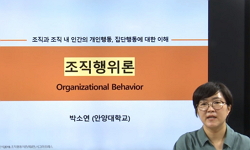[Research Purpose] This study emphasized the importance of inclusive leadership appropriate to the recent situation by studying the impact of inclusive leadership on organizational performance and analyzing whether the mediating effect of psychologica...
http://chineseinput.net/에서 pinyin(병음)방식으로 중국어를 변환할 수 있습니다.
변환된 중국어를 복사하여 사용하시면 됩니다.
- 中文 을 입력하시려면 zhongwen을 입력하시고 space를누르시면됩니다.
- 北京 을 입력하시려면 beijing을 입력하시고 space를 누르시면 됩니다.

포용적 리더십이 조직성과에 미치는 영향에 관한 연구 - 심리적 임파워먼트의 매개효과를 중심으로 - = A Study on The Influence of Inclusive Leadership Affecting Organization Performance - Focused on The Mediating Effect of psychological Empowerment
한글로보기부가정보
다국어 초록 (Multilingual Abstract)
[Methodology] A research model was established and empirically analyzed to verify the effect of accessibility, openness, and usefulness, which are components of inclusive leadership, on innovative behavior and organizational citizenship behavior, and the mediating effect of psychological empowerment between inclusive leadership and organizational performance.
[Findings] As a result of hypothesis verification (N=278), first, inclusive leadership has a significant positive (+) effect on innovation behavior, and has a high influence on openness. Second, inclusive leadership has a positive (+) effect on organizational citizenship behavior, and has a high influence on accessibility. Third, in the relationship between inclusive leadership and organizational performance, psychological empowerment has a positive (+) effect as a parameter.
[Implications] Inclusive leadership creates a positive sentiment for the organization because it strives to maintain favorable relationships with members of the organization and satisfy their needs. Therefore, leaders should provide opportunities for clear job division, design, and autonomous expression so that they can share knowledge and information for job performance and not recognize defensive attitudes and anxiety about their opinions and actions. Organizational members who have formed psychological empowerment through this are expected to actively speak or act for the development of the organization with high motivation.
[Research Purpose] This study emphasized the importance of inclusive leadership appropriate to the recent situation by studying the impact of inclusive leadership on organizational performance and analyzing whether the mediating effect of psychological empowerment acts as a parameter between inclusive leadership and organizational performance. Voluntary innovation and organizational citizenship behaviors of organizational members are required for organizations to actively adapt to environmental changes and continue development, and the behavior of these organizational members is not the result of decision-making by competent leaders, but by inclusive leadership based on respecting the personality and opinions of organizational members and trust.
[Methodology] A research model was established and empirically analyzed to verify the effect of accessibility, openness, and usefulness, which are components of inclusive leadership, on innovative behavior and organizational citizenship behavior, and the mediating effect of psychological empowerment between inclusive leadership and organizational performance.
[Findings] As a result of hypothesis verification (N=278), first, inclusive leadership has a significant positive (+) effect on innovation behavior, and has a high influence on openness. Second, inclusive leadership has a positive (+) effect on organizational citizenship behavior, and has a high influence on accessibility. Third, in the relationship between inclusive leadership and organizational performance, psychological empowerment has a positive (+) effect as a parameter.
[Implications] Inclusive leadership creates a positive sentiment for the organization because it strives to maintain favorable relationships with members of the organization and satisfy their needs. Therefore, leaders should provide opportunities for clear job division, design, and autonomous expression so that they can share knowledge and information for job performance and not recognize defensive attitudes and anxiety about their opinions and actions. Organizational members who have formed psychological empowerment through this are expected to actively speak or act for the development of the organization with high motivation.
동일학술지(권/호) 다른 논문
-
전북지역의 고용환경변화에 대응한 고용정책 개선방안에 관한 연구
- 대한경영정보학회
- 강남호
- 2024
- KCI등재
-
주식수익률과 환율 간의 변동성 추정 - 코로나19 팬데믹 기간의 금융시장을 중심으로
- 대한경영정보학회
- 김경수
- 2024
- KCI등재
-
IPA 기법을 활용한 IT 기업의 역량 포지션 분석과 성장지원 방향에 관한 연구
- 대한경영정보학회
- 문지효
- 2024
- KCI등재
-
조건부 보수주의 시계열 추세 및 미래 현금흐름 예측능력에 발생액의 추정방법이 미치는 영향
- 대한경영정보학회
- 신유진
- 2024
- KCI등재




 eArticle
eArticle


